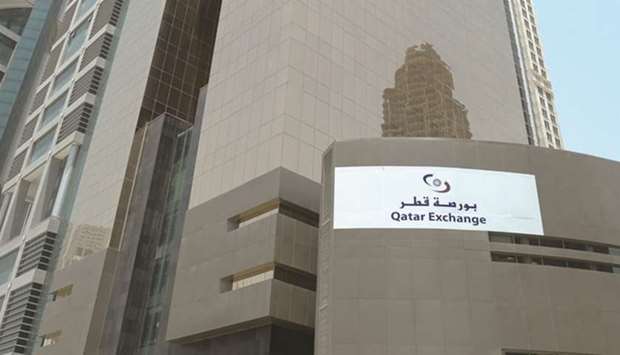The performance of Vodafone Qatar and Doha Bank stood above emerging market average under the environment, social and governance (ESG) parameters, as per the global index compiler FTSE Russell’s ESG ranking.
QNB, Commercial Bank, Masraf Al Rayan, Qatar Islamic Bank and Nakilat also fared well by standing above the Qatar average, according to FTSE Russell. Another 11 listed constituents were seen below the country's average.
Three entities within FTSE index are currently undergoing research, a key official of FTSE Russell said; expressing the hope that more listed firms would come under its review.
At present, the Qatar Stock Exchange (QSE) has 48 listed companies with 13 under banks and financial services, 10 each under consumer goods and services and industrials, five under insurance, four each under real estate and transport and two under telecom.
The FTSE official said although the region has some foibles, many bourses have undertaken crucial reforms, especially in view of attracting foreign investors.
"It is encouraging to see more interest from the (Middle East) regional exchanges and market participants into incorporating ESG practices," the official said.
QSE chief executive Rashid bin Ali al-Mansoori recently pitched for a mandatory ESG reporting by the listed companies, which could help investors determine a company’s ability to create value on a sustainable basis.
"It (ESG) is fast becoming an integral part within the global landscape and the trends have started emerging here too," an official of a QSE-listed entity told Gulf Times.
The QSE is among the first stock exchanges in the world to encourage transparency and disclosure by promoting the digitalisation of ESG data.
The online ESG platform allows all listed companies to login, upload their sustainability reports and submit their sustainability data on the QSE’s 34 ESG indicators. Investors can have real-time access to publicly reported essential sustainability data, information and reports organised by each issuer all from a single source.
The ESG factors will have an impact on access to capital; revenue growth potential and market access; risks, costs and productivity; brand value and reputation; human capital, employee recruitment and retention, according to the QSE's ESG guidelines.
“Responsible investing is one of the fastest growing trends in financial market. Companies in the region need to be prepared to meet the demanding ESG disclosure requirements of investors and ESG rating agencies,” Houssam Lahrech, Head of ESG Invest – Independent ESG Rating Division of Sustainability Excellence, said earlier.
In 2009, the UN secretary-general launched the Sustainable Stock Exchanges Initiative (SSEI) to explore how stock exchanges – together with their respective policymakers, regulators, investors and companies – can promote responsible investments and sustainable development.
In 2014, the SSEI published a document that is designed to assist exchanges to issue guidelines for issuer reporting of ESG information (the UN Model Guidance). The SSEI is actively supported by the World Federation of Exchanges, the global industry association for stock exchanges, of which QSE is a member.
Three entities within FTSE index are currently undergoing research, a key official of FTSE Russell said; expressing the hope that more listed firms would come under its review.
At present, the Qatar Stock Exchange (QSE) has 48 listed companies with 13 under banks and financial services, 10 each under consumer goods and services and industrials, five under insurance, four each under real estate and transport and two under telecom.
The FTSE official said although the region has some foibles, many bourses have undertaken crucial reforms, especially in view of attracting foreign investors.
"It is encouraging to see more interest from the (Middle East) regional exchanges and market participants into incorporating ESG practices," the official said.
QSE chief executive Rashid bin Ali al-Mansoori recently pitched for a mandatory ESG reporting by the listed companies, which could help investors determine a company’s ability to create value on a sustainable basis.
"It (ESG) is fast becoming an integral part within the global landscape and the trends have started emerging here too," an official of a QSE-listed entity told Gulf Times.
The QSE is among the first stock exchanges in the world to encourage transparency and disclosure by promoting the digitalisation of ESG data.
The online ESG platform allows all listed companies to login, upload their sustainability reports and submit their sustainability data on the QSE’s 34 ESG indicators. Investors can have real-time access to publicly reported essential sustainability data, information and reports organised by each issuer all from a single source.
The ESG factors will have an impact on access to capital; revenue growth potential and market access; risks, costs and productivity; brand value and reputation; human capital, employee recruitment and retention, according to the QSE's ESG guidelines.
“Responsible investing is one of the fastest growing trends in financial market. Companies in the region need to be prepared to meet the demanding ESG disclosure requirements of investors and ESG rating agencies,” Houssam Lahrech, Head of ESG Invest – Independent ESG Rating Division of Sustainability Excellence, said earlier.
In 2009, the UN secretary-general launched the Sustainable Stock Exchanges Initiative (SSEI) to explore how stock exchanges – together with their respective policymakers, regulators, investors and companies – can promote responsible investments and sustainable development.
In 2014, the SSEI published a document that is designed to assist exchanges to issue guidelines for issuer reporting of ESG information (the UN Model Guidance). The SSEI is actively supported by the World Federation of Exchanges, the global industry association for stock exchanges, of which QSE is a member.


